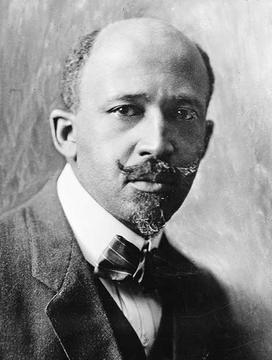Class Close-Up: Using Literature to Examine Socialism

While the word “socialism” dates to the 19th century, the ideas behind it can be seen in ancient times, as in early Christianity. But to this day there’s still confusion about exactly what the term means. Benjamin Conisbee Baer set out to provide clarity when he created the class “What is Socialism? Literature and Politics.”
“One of the main goals is, in fact, for students to really understand that there is no one socialism,” said Baer, an associate professor of comparative literature whose research interests include Marxism and postcolonial literature and theory. “Socialism itself is a very multistranded tradition.”
Baer noticed a surge in interest in socialism in the past few years, particularly among young people. He linked the newfound interest to popular figures such as Bernie Sanders, who describes himself as a “democratic socialist.” During the Cold War era, the idea of socialism was largely aligned with communism and seen as a threat, Baer said. Today’s young people did not grow up with those associations, which may account for why they are more interested in and open to the concept, he added.
While the word “socialism” dates to the 19th century, the ideas behind it can be seen in ancient times ... . But to this day there’s still confusion about exactly what the term means.
The seminar-style class of 15 students has been meeting weekly during the spring semester on Zoom. Baer lectures on the readings for the first portion of each class session before transitioning to a discussion in which students can share ideas and ask questions. In the final part of the class, students are grouped into breakout rooms for further discussion and activities. What makes this a comparative literature course is the use of “influential literary works” as the lens to examine socialism, Baer said. Class readings include Ovid’s Metamorphoses, Wealth of Nations by Adam Smith, and Black Reconstruction in America by W.E.B. Du Bois.
The class largely focuses on the intersection of history, politics, and the literature of socialism. “We talk about it as this search for an alternative” to capitalism, Baer said. He found the students to be very engaged as they piece together socialism’s relevance in their lives. For example, they have discussed ways to imagine a different future, as their generation has seen cycles of economic crisis, job uncertainty, and ballooning debt. Some want to explore whether socialism could improve race, class, and gender disparities, Baer said.
Charlotte Thiel ’22, a comparative literature major, took the class to learn about the role socialism has played throughout history. It has helped to broaden her understanding of the topic, which previously was “very tied to the ideology of just what it would look like if the masses owned the means of production,” she said. “I didn’t think a lot about the many strains of what that thinking has actually come out of. I didn’t understand how historically bound a lot of discussions of socialism are.”











1 Response
Herman Archer ’53
4 Years AgoHumanity Over Profit
I read with satisfaction and great hopes your piece on Professor Baer’s seminar looking for what socialism is (On the Campus, April issue). I am so sick of the far right using that word as a dog whistle to attempt to smear the slightest attempt to bring true social justice to our country. The Wall Street Journal has been pathetic in that cause, floating dictatorial Venezuela as if proof of the iniquity of a system whose creation in the 19th century was launched to combat savage early capitalism. Unyielding in their corruption of the term to serve their cause of political and economic exploitation of the greater population, the far right deliberately ignores the example of true democratic socialism installed in post Second World War Britain by the Labour Party under Clement Attlee. Not perfect by any means, still, its target was humanity over soulless profit.